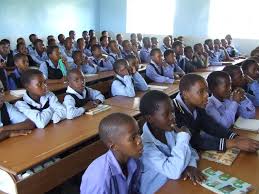By Joyce Mukucha
The Women’s Coalition of Zimbabwe(WCoZ), a non-partisan national network of women’s rights organisations and activists striving for the rights of women and girls has applauded teachers for showing great commitment and creativity in ensuring that education continues to take place as well as guaranteeing that no learner is left behind during the Covid-19 crisis.
The organisation revealed this on the commemorations of International Day of Education held on the 24th of January which was running under the theme: “Revise and Revitalize for the Covid-19 Generation.”
On December 3, 2018, the United Nations (UN) General Assembly adopted a resolution declaring January 24 as ‘International Day of Education.
With the adoption of Sustainable Development Goal 4, the day reflects upon the commitment to celebrate the role of education for peace and development and understanding that without inclusive, equitable and quality, and lifelong opportunities for all, countries will not succeed in achieving gender equality.
In a statement, WCoZ said across the globe and in Zimbabwe, teachers have worked individually and collectively to find solutions and creating new learning environments for their students and ensure that education continue during the difficult times posed by the deadly pandemic.
“In this crisis, teachers have undoubtedly shown great leadership and innovation in ensuring that education never stops as well as ensuring that no learner is left behind during the Covid-19 crisis,” reads the statement.
WCoZ also stressed that it was imperative to consider joining hands with teachers and working collectively with them from now going forward to protect the right to education.
“Now more than ever, we must work with teachers to protect the right to education and guide it into the unfolding landscape brought about by the pandemic for the full recognition of the right to education as envisioned by Section 75 of our Constitution.”
Additionally, WCoZ highlighted that the nation cannot be rebuilt without the unwavering support and contribution of teachers.
“Teaching has a value above and beyond social gains and the rebuilding of the country cannot occur without teachers playing an active, productive, recognised, and fully supported role.”
The organisation also underscored the need for government to recognize teachers as a vital component of education by addressing their needs that impact the delivery of quality education.
“This includes the provision of remuneration for teachers that speaks to the nation’s standard of living as well as the provision of appropriate support mechanisms to continue with learning such as adequate Personal Protective Equipment in schools and ICT infrastructure.”
Though it has commended commitment and dedication by teachers to extend education to learners, the organisation has noted with concern that school closures in the country have disrupted the education of more than 4.6 million and this has adverse impacts on the protection and well-being of children particularly on the issue of readiness for school attendance and participation for n learning.
“In fact, school prolonged closures are already exacerbating existing vulnerabilities and inequalities among children especially girls, children with disabilities and those in rural areas, orphans and vulnerable children as well as those from poor households and fragile families.”
In a way aimed at ensuring that no learner is being left behind, WCoZ has called upon the government to urgently intervene with relevant and practical mechanisms.
“As we wind up the celebrations of the International Day on Education, we call upon the government to urgently ensure and prioritize continued learning for marginalised learners while schools are closed through providing materials for study such as books, ICT gadgets, sanitary ware that are accessible for all learners in a bid to renew the hope for learners and communities in education especially the girl child.”
The crisis, said WCoZ, has increased discouragement amongst girls and young women clouded their hopes of success with heightened pressure from their parents to drop out of school, enter the labour market, or get married.
The government was also called upon to provide plans that seek to provide re-entry support to pregnant girls and young women who wish to return to school.
“This also means providing adequate resources and structures to provide girls with skills and expertise as a means to enhance their livelihoods. The government should put in place a monitoring system to ensure schools accommodate pregnant students and adolescent mothers. The full implementation of this law will go a long way in ensuring that more young people realise their right to education and complete compulsory basic and secondary education in Zimbabwe.”
Provision of suitable infrastructure for students with disabilities improved approaches to ensuring that learners especially girls in their diverse backgrounds are able to continue learning during pandemic and tracking of numbers of children affected by school closures have been indicated as significant actions that need to be taken by the government to protect the right to education.
Even though the nation and various schools introduced online learning to mitigate the impact of school closures on learners, the coalition pointed out that the initiative was met with a plethora of challenges.
These include and are not limited to; the cost of internet data and limited access in rural communities even for radio lessons, virtual platforms that are not disability friendly, caregivers unable to failing to support their children during the online sessions due to other commitments such as finding means to support the family financially and digital learning as a new phenomenon for both teachers and students becoming a hard terrain to navigate.
